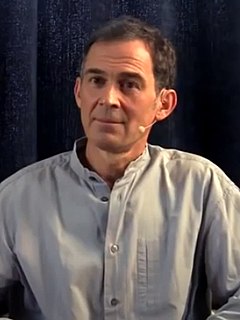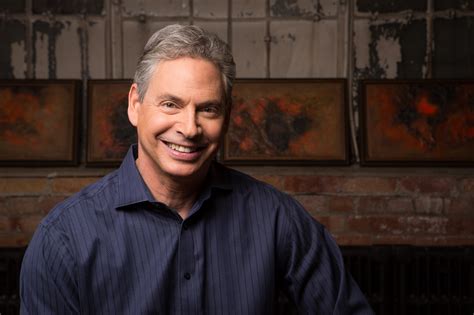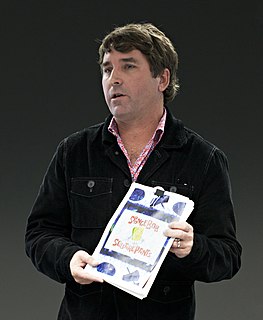A Quote by Jack Kornfield
We have so many ideas and beliefs about ourselves. We told ourselves story about what we want and who we are, smart or kind. Often these are the unexamined and limited ideas of others that we have internalized and then gone on to life out.
Related Quotes
I am often talking about the ideas collected in Normal Life in contexts that are not academic, or that are full of people who are not primarily engaging as theorists or theory-readers. Being able to make ideas visual, especially critical ideas about movements that can be difficult to hear because of attachments we have to certain national narratives, or because of ways that we see ourselves, is especially useful.
How often do we tell our own life story? How often do we adjust, embellish, make sly cuts? And the longer life goes on, the fewer are those around to challenge our account, to remind us that our life is not our life, merely the story we have told about our life. Told to others, but — mainly — to ourselves.
We all have different desires and needs, but if we don't discover what we want from ourselves and what we stand for, we will live passively and unfulfilled. Sooner or later, we are all asked to compromise ourselves and the things we care about. We define ourselves by our actions. With each decision, we tell ourselves and the world who we are. Think about what you want out of this life, and recognize that there are many kinds of success.
I think that we're all, as human beings, so limited. If we want to write about ourselves, that's fairly easy. And if we write about our friends or our families, we can do that. But if we want to project ourselves somewhere beyond our personal experience, we're going to fail unless we get that experience or we borrow it from others.
I think that we're all, as human beings, so limited. If we want to write about ourselves, that's fairly easy. And if we write about our friends or our families, we can do that. But if we want to project ourselves somewhere beyond our personal experience we're going to fail unless we get that experience or we borrow it from others.
Why is it that, when we want to think outside the proverbial box, we often put ourselves in one? We gather our team in a conference room, plaster the walls with sticky paper, and wait for the ideas to flow in a stream of marker scribbles. How often has your quest for innovation peaked at renovation - new dressing on old ideas?
The ideas always have to be in service of the story. And that's what Scott and the writers did - they weren't trying to beat you over the head with an idea; they had a story they wanted to tell, and they had ideas, so they used the story as a way of fleshing out the ideas. It all depends on where they want to go with it.
We all have found ourselves in awkward, embarrassing situations, often brought on by ourselves - thinking we are saying something clever, for example, when it turns out to sound really mean or stupid. Those are the kind of embarrassing situations that we could have avoided. "Welcome to the human race," is about the only comfort we can give ourselves.




































